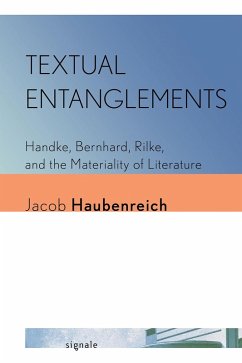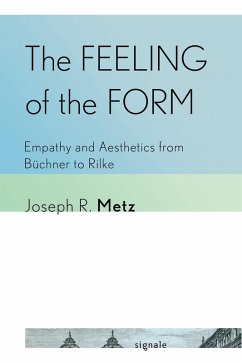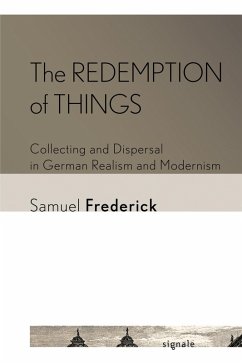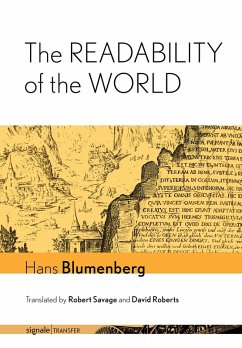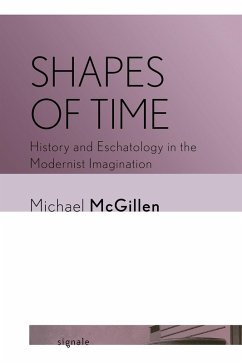
Chinese Sympathies (eBook, ePUB)
Media, Missionaries, and World Literature from Marco Polo to Goethe

PAYBACK Punkte
0 °P sammeln!
Chinese Sympathies examines how Europeans-German-speaking writers and thinkers in particular-identified with Chinese intellectual and literary traditions following the circulation of Marco Polo's Travels. This sense of affinity expanded and deepened, Daniel Leonhard Purdy shows, as generations of Jesuit missionaries, baroque encyclopedists, Enlightenment moralists, and translators established intellectual regimes that framed China as being fundamentally similar to Europe.Analyzing key German literary texts-theological treatises, imperial histories, tragic dramas, moral philosophies, literary t...
Chinese Sympathies examines how Europeans-German-speaking writers and thinkers in particular-identified with Chinese intellectual and literary traditions following the circulation of Marco Polo's Travels. This sense of affinity expanded and deepened, Daniel Leonhard Purdy shows, as generations of Jesuit missionaries, baroque encyclopedists, Enlightenment moralists, and translators established intellectual regimes that framed China as being fundamentally similar to Europe.
Analyzing key German literary texts-theological treatises, imperial histories, tragic dramas, moral philosophies, literary translations, and poetic cycles-Chinese Sympathies traces the paths from baroque-era missionary reports that accommodated Christianity with Confucianism to Goethe's concept of world literature, bridged by Enlightenment debates over cosmopolitanism and sympathy, culminating in a secular principle that allowed readers to identify meaningful similarities across culturally diverse literatures based on shared human experiences.
This book is freely available in an open access edition thanks to TOME (Toward an Open Monograph Ecosystem)-a collaboration of the Association of American Universities, the Association of University Presses, and the Association of Research Libraries-and the generous support of the Pennsylvania State University. Learn more at the TOME website, available at: openmonographs.org. The open access edition is available at Cornell Open (cornellpress.cornell.edu/cornell-open) and other repositories.
Analyzing key German literary texts-theological treatises, imperial histories, tragic dramas, moral philosophies, literary translations, and poetic cycles-Chinese Sympathies traces the paths from baroque-era missionary reports that accommodated Christianity with Confucianism to Goethe's concept of world literature, bridged by Enlightenment debates over cosmopolitanism and sympathy, culminating in a secular principle that allowed readers to identify meaningful similarities across culturally diverse literatures based on shared human experiences.
This book is freely available in an open access edition thanks to TOME (Toward an Open Monograph Ecosystem)-a collaboration of the Association of American Universities, the Association of University Presses, and the Association of Research Libraries-and the generous support of the Pennsylvania State University. Learn more at the TOME website, available at: openmonographs.org. The open access edition is available at Cornell Open (cornellpress.cornell.edu/cornell-open) and other repositories.
Dieser Download kann aus rechtlichen Gründen nur mit Rechnungsadresse in A, D ausgeliefert werden.





